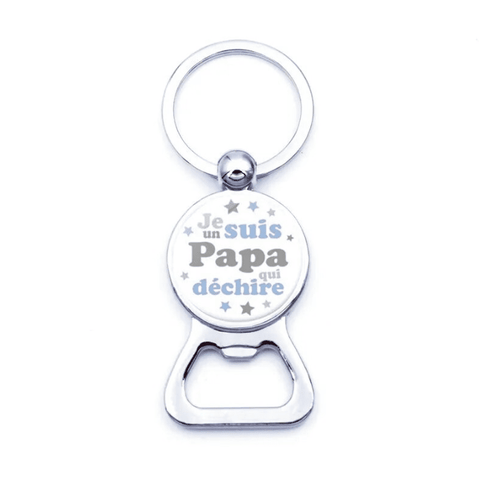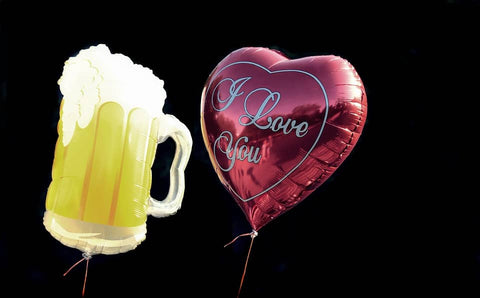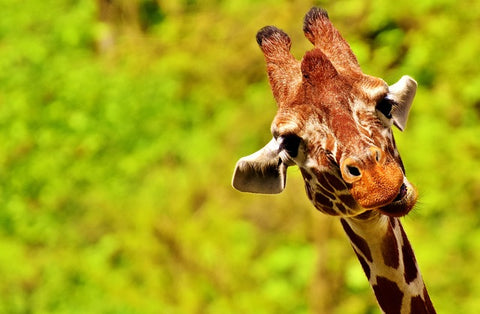
What is the history of beer in Europe?
of reading
You've probably already asked yourself one of these questions: Where does beer come from and what is its history? What was it originally made with? Who invented the initial recipe for this brew of the gods?
Beer has been a part of European culture for centuries . From the ancient Greeks to the Romans and all the way to modern Europe, it has been an integral part of life. Beer has helped shape our history, from religious ceremonies to festivals and even wars.
In this article, I'll take you on a journey through the history of beer in Europe, from its origins to its current form. The era of the beer mug wasn't quite here yet, as you already had to have the drink you wanted to put in it!
We will examine how different countries in Europe have shaped the beer industry and what trends have emerged over time.
We'll also examine some of the most popular types of beer in Europe today and how they differ from one another. Finally, we'll discuss some of the use cases for beer in Europe today and what this means for its future.
The invention of beer
Beer is the oldest recorded beverage recipe in the world. The ancient Egyptians were the first to document brewing and its manufacturing process. In 5000 BC, papyri were written describing this practice.
Other sources even refer to the Sumerians and the peoples of Mesopotamia who would have started brewing well before the Egyptians, around 5000 years earlier! Yes, beer would therefore be more than 12,000 years old!

No written trace of a beer recipe has been found, but during archaeological excavations, remains of malted barley and beer residues were discovered. It is likely that the first draft of beer was the remains of a grain porridge that fermented with wild yeast. Thus, the alcohol was born, and it must have been very popular with its first tasters!
The first beer recipes
In ancient Egyptian times, people brewed their beer with the fruits and grains around them: dates, pomegranates, or certain local grains like wheat or barley. Initially, beer was intended for religious ceremonies . The Pharaoh King was a sort of master brewer and the conductor of this production.
It was he who then allowed the population to have access to this sweet nectar. Of course, it was an opportunity to collect taxes, you can't change your ways, right? We can therefore consider that the first master brewers were the pharaohs who succeeded one another from 4000 BC. On the other hand, it was the priests who brewed, the pharaoh being the boss!

On the other hand, the taste of beer at that time must have been very different from what we consume today. We don't know if the Egyptians had specific containers for drinking their beer. They must have been some kind of jug.
Beer arrives in Europe
The Egyptians were a trading people, and beer made its way from the Middle East across the Mediterranean to Europe . Through trade, beer and its brewing process spread very easily in Europe . Strange, isn't it?
The most spectacular development was in Northern Europe . Its rich lands were already abundant in barley, and this naturally made things easier. The first budding brewers had their raw material in astronomical quantities!

Beer quickly gained popularity for its nutritional value, as it was a rich beverage. What's more, it was a much safer alternative to drinking water . At the time, environmental standards didn't exist, and it was common for people to contaminate the water they had access to with their waste.
Modern beer was born in the Middle Ages
It was during the early Middle Ages that most scientists agree that brewed beer can be considered modern . Brewmasters of the time had been using malted barley for hundreds of years. It was their main source of fermentable sugar.
In the 12th century, some people came up with the idea of perfecting this ancient recipe with hops . This added a bitter but also aromatic taste. Previously, the aroma of beer could come from all sorts of herbs or spices that grew locally. These aromas helped balance the sweet malt flavors of the beer.

Anything and everything was used to break down the sugar, with not always very happy results... It was around 1150 that German monks began adding wild hops to balance the flavors. Very quickly, this new ingredient became a hit and was adopted throughout Europe.
Almost all modern beers still contain hops , which is why the beer of that era is considered to be the same as the beer of today.
Monks were the greatest brewers of the Middle Ages
It was following this wonderful discovery of using wild hops in beer that the monks' hegemony began. The monk brewmasters had discovered that hops added a very pleasant bitterness to beer. This gave it a much more thirst-quenching quality.
Don't forget either that the monks were adept at medicinal plants, including hops . Each monastery had its own medicinal plant garden. They knew its properties, and one of them was particularly useful: hops are a natural preservative. This gave beer a second life because it could be preserved for much longer.
This improved preservation allowed it to be transported over longer distances. An ideal and undeniable advantage for trade!

Historians have noted many innovations in brewing and blending techniques during this period. Brewer monks were the majority contributors to these innovations . At this time, almost all monasteries brewed their own beer. Monks innovated with hops, creating lager beer, and even keeping beer cool to enhance its flavor.
Today, this monastic tradition is still relevant, particularly with abbey beers and Trappist beers. I won't be telling you anything new by saying that monasteries in Belgium dominate the rankings in terms of representation in this specific sector. Brands such as Leffe, Affligem, and Grimbergen, among others, are the heirs of this expertise.
I could devote an entire article to Belgian beer, but that will be for another time, otherwise this one might be very long! Belgium is one of the leading brewing countries, and many of its products regularly win awards.
Beer in England
Just like the rest of Europe, the British Isles have embraced beer culture . The English are known for doing things differently (a bit like the French, in fact!). They didn't just follow the beer recipe that arrived in their country to the letter.

Many beer styles that still exist today were created in the United Kingdom and Ireland : Pale Ales, Porters, and Stouts in particular. Beer was a huge success in these English-speaking countries. The British Army even planned to issue a daily ration of beer to its soldiers. This is how the IPA, or India Pale Ale, was born.
The British Empire invents the IPA
I'm not telling you anything new when I tell you that the British Empire was one of the greatest the world has ever known. Its possessions were immense all over the world, and the Royal Navy therefore had to send beer rations to its soldiers over very long distances .
Despite the addition of hops in normal quantities, preserving beer for months was very problematic . What eventually arrived at its destination no longer really resembled beer. It was at best sour, but more often than not, it was simply stale.

Beer shipments to the distant colonies of India were the most complex. Brewers of the time conducted numerous tests and a dual solution appeared to be the most suitable: increasing the alcohol content and multiplying the quantity of hops . These two natural preservatives in sufficient quantity allowed for a more peaceful journey.
The IPA was born. However, over the years, this very bitter type of beer was not a phenomenal success and fell somewhat into disuse. It was the Americans who brought it back into fashion in the 1990s . Since then, it has become a hit and almost every country produces and/or consumes it.
Beer in France
And what about France? The country known worldwide for its wine has also succumbed to the lure of our beloved hoppy beverage . First, cervoise, then beer, with the same evolution as in other European countries.
It was then unsurprising that breweries concentrated where hops grew naturally . Since the monks had been there, the addition of hops was de rigueur.

This medicinal plant historically grows in the north and east of France because it requires a temperate, not too hot, climate. It's no coincidence that the most famous breweries like Kronembourg and Pelforth originate from these regions. The overwhelming majority of French production was pilsner or lager, very similar to German beer.
As in all other countries, the export of malts and hops allowed breweries to develop throughout France. With these changes, it was no longer necessary to have the raw materials locally to brew and produce beer. French craft breweries have flourished in every region ever since.
Beer in Europe still has a bright future ahead of it
Beer has been a staple of European culture for millennia, with roots dating back to ancient times. From the earliest primitive beers to modern craft beers, Europe has developed a rich and varied beer culture over the centuries . From its humble beginnings in small-scale production to its current status as a multi-billion dollar industry, beer has become an integral part of European society and culture.
Beer has been a staple of European culture for centuries, and over time, different countries have developed their own brewing styles and techniques. From lagers in Germany to stouts in England, beer has evolved over the centuries in Europe . With the introduction of new ingredients, processes, and technologies throughout history, trends have emerged and shaped the beer industry in each country.

Beer has been an integral part of European culture for centuries. In recent years, its uses have expanded beyond the traditional social setting , with many creative applications being developed.
From craft breweries to beer-based cosmetics, Europe is at the forefront of beer innovation . This could be a sign of things to come, as beer continues to evolve and find new markets in Europe. There have never been more beer varieties or breweries than there are now.
If you had the patience to read my article to the end, know that you can benefit from a 20% discount on your entire order by entering the code BLOG20 in your basket.
I'm reserving this code for my most loyal readers who discovered our site through the articles I lovingly post! FYI, the code cannot be combined with other discount codes because you can't overdo it, eh! 20% off doesn't leave us much room to spare, but at least I'm rewarding my readers.
To encourage and support me, don't hesitate to buy something from us! 😊
Our site offers more than 100 beer mugs different and all unique! We have the largest selection online and in physical stores.
To discover all of our products, click on this link: Chopedebiere .
If you want to read one of my other articles, I suggest you discover my top 10 best drinking games .
To see all my other blog posts, click on Chopedebiere Blog.













